- Home
- Sidney Sheldon
The Naked Face Page 2
The Naked Face Read online
Page 2
And now here were these two mothers from the Homicide Squad wanting to see him.
McGreavy was getting impatient. “How about it, miss?” he asked.
“I have orders never to disturb him when he’s with a patient,” said Carol. She saw the expression that came into McGreavy’s eyes. “I’ll ring him.” She picked up the phone and pressed the intercom buzzer. After thirty seconds of silence, Dr. Stevens’ voice came over the phone. “Yes?”
“There are two detectives here to see you, Doctor. They’re from the Homicide Division.”
She listened for a change in his voice…nervousness…fear. There was nothing. “They’ll have to wait,” he said. He went off the line.
A surge of pride flared through her. Maybe they could panic her, but they could never get her doctor to lose his cool. She looked up defiantly. “You heard him,” she said.
“How long will his patient be in there?” asked Angeli, the younger man.
She glanced at the clock on the desk. “Another twenty-five minutes. It’s his last patient for the day.”
The two men exchanged a look.
“We’ll wait,” sighed McGreavy.
They took chairs. McGreavy was studying her. “You look familiar,” he said.
She wasn’t deceived. The mother was on a fishing expedition. “You know what they say,” replied Carol. “We all look alike.”
Exactly twenty-five minutes later, Carol heard the click of the side door that led from the doctor’s private office directly to the corridor. A few moments later, the door to the doctor’s office opened and Dr. Judd Stevens stepped out. He hesitated as he saw McGreavy. “We’ve met before,” he said. He could not remember where.
McGreavy nodded impassively. “Yeah…Lieutenant McGreavy.” He indicated Angeli. “Detective Frank Angeli.”
Judd and Angeli shook hands. “Come in.”
The men walked into Judd’s private office and the door closed. Carol looked after them, trying to piece it together. The big detective had seemed antagonistic toward Dr. Stevens. But maybe that was just his natural charm. Carol was sure of only one thing. Her dress would have to go to the cleaner’s.
Judd’s office was furnished like a French country living room. There was no working desk. Instead, comfortable easy chairs and end tables with authentic antique lamps were scattered about the room. At the far end of the office a private door led out to the corridor. On the floor was an exquisitely patterned Edward Fields area rug, and in a corner was a comfortable damask-covered contour couch. McGreavy noted that there were no diplomas on the walls. But he had checked before coming here. If Dr. Stevens had wanted to, he could have covered his walls with diplomas and certificates.
“This is the first psychiatrist’s office I’ve ever been in,” Angeli said, openly impressed. “I wish my house looked like this.”
“It relaxes my patients,” Judd said easily. “And by the way, I’m a psychoanalyst.”
“Sorry,” Angeli said. “What’s the difference?”
“About fifty dollars an hour,” McGreavy said. “My partner doesn’t get around much.”
Partner. And Judd suddenly remembered. McGreavy’s partner had been shot and killed and McGreavy had been wounded during the holdup of a liquor store four—or was it five?—years ago. A petty hoodlum named Amos Ziffren had been arrested for the crime. Ziffren’s attorney had pleaded his client not guilty by reason of insanity. Judd had been called in as an expert for the defense and asked to examine Ziffren. He had found that he was hopelessly insane with advanced paresis. On Judd’s testimony, Ziffren had escaped the death penalty and had been sent to a mental institution.
“I remember you now,” Judd said. “The Ziffren case. You had three bullets in you; your partner was killed.”
“And I remember you,” McGreavy said. “You got the killer off.”
“What can I do for you?”
“We need some information, Doctor,” McGreavy said. He nodded to Angeli. Angeli began fumbling at the string on the package he carried.
“We’d like you to identify something for us,” McGreavy said. His voice was careful, giving nothing away.
Angeli had the package open. He held up a yellow oilskin rain slicker. “Have you ever seen this before?”
“It looks like mine,” Judd said in surprise.
“It is yours. At least your name is stenciled inside.”
“Where did you find it?”
“Where do you think we found it?” The two men were no longer casual. A subtle change had taken place in their faces.
Judd studied McGreavy a moment, then picked up a pipe from a rack on a long, low table and began to fill it with tobacco from a jar. “I think you’d better tell me what this is all about,” he said quietly.
“It’s about this raincoat, Dr. Stevens,” said McGreavy. “If it’s yours, we want to know how it got out of your possession.”
“There’s no mystery about it. It was drizzling when I came in this morning. My raincoat was at the cleaners, so I wore the yellow slicker. I keep it for fishing trips. One of my patients hadn’t brought a raincoat. It was beginning to snow pretty heavily, so I let him borrow the slicker.” He stopped, suddenly worried. “What’s happened to him?”
“Happened to who?” McGreavy asked.
“My patient—John Hanson.”
“Check,” Angeli said gently. “You hit the bull’s-eye. The reason Mr. Hanson couldn’t return the coat himself is that he’s dead.”
Judd felt a small shock go through him. “Dead?”
“Someone stuck a knife in his back,” McGreavy said.
Judd stared at him incredulously. McGreavy took the coat from Angeli and turned it around so that Judd could see the large, ugly slash in the material. The back of the coat was covered with dull, henna-colored stains. A feeling of nausea swept over Judd.
“Who would want to kill him?”
“We were hoping that you could tell us, Dr. Stevens,” said Angeli. “Who’d know better than his psychoanalyst?”
Judd shook his head helplessly. “When did it happen?”
McGreavy answered. “Eleven o’clock this morning. On Lexington Avenue, about a block from your office. A few dozen people must have seen him fall, but they were busy going home to get ready to celebrate the birth of Christ, so they let him lie there bleeding to death in the snow.”
Judd squeezed the edge of the table, his knuckles white.
“What time was Hanson here this morning?” asked Angeli.
“Ten o’clock.”
“How long do your sessions last, Doctor?”
“Fifty minutes.”
“Did he leave as soon as it was over?”
“Yes. I had another patient waiting.”
“Did Hanson go out through the reception office?”
“No. My patients come in through the reception office and leave by that door.” He indicated the private door leading to the outside corridor. “In that way they don’t meet each other.”
McGreavy nodded. “So Hanson was killed within a few minutes of the time he left here. Why was he coming to see you?”
Judd hesitated. “I’m sorry. I can’t discuss a doctor-patient relationship.”
“Someone murdered him,” McGreavy said. “You might be able to help us find his killer.”
Judd’s pipe had gone out. He took his time lighting it again.
“How long had he been coming to you?” This time it was Angeli. Police teamwork.
“Three years,” Judd said.
“What was his problem?”
Judd hesitated. He saw John Hanson as he had looked that morning; excited, smiling, eager to enjoy his new freedom. “He was a homosexual.”
“This is going to be another one of those beauties,” McGreavy said bitterly.
“Was a homosexual,” Judd said. “Hanson was cured. I told him this morning that he didn’t have to see me any more. He was ready to move back in with his family. He has—had—a wife and two children.”
/>
“A fag with a family?” asked McGreavy.
“It happens often.”
“Maybe one of his homo playmates didn’t want to cut him loose. They got in a fight. He lost his temper and slipped a knife in his boyfriend’s back.”
Judd considered. “It’s possible,” he said thoughtfully, “but I don’t believe it.”
“Why not, Dr. Stevens?” asked Angeli.
“Because Hanson hadn’t had any homosexual contacts in more than a year. I think it’s much more likely that someone tried to mug him. Hanson was the kind of man who would have put up a fight.”
“A brave married fag,” McGreavy said heavily. He took out a cigar and lit it. “There’s only one thing wrong with the mugger theory. His wallet hadn’t been touched. There was over a hundred dollars in it.” He watched Judd’s reaction.
Angeli said, “If we’re looking for a nut, it might make it easier.”
“Not necessarily,” Judd objected. He walked over to the window. “Take a look at that crowd down there. One out of twenty is, has been, or will be in a mental hospital.”
“But if a man’s crazy…?”
“He doesn’t have to necessarily appear crazy,” Judd explained. “For every obvious case of insanity there are at least ten cases undiagnosed.”
McGreavy was studying Judd with open interest. “You know a lot about human nature, don’t you, Doctor?”
“There’s no such thing as human nature,” Judd said. “Any more than there’s such a thing as animal nature. Try to average out a rabbit and a tiger. Or a squirrel and an elephant.”
“How long you been practicing psychoanalysis?” asked McGreavy.
“Twelve years. Why?”
McGreavy shrugged. “You’re a good-looking guy. I’ll bet a lot of your patients fall in love with you, huh?”
Judd’s eyes chilled. “I don’t understand the point of the question.”
“Oh, come on, Doc. Sure you do. We’re both men of the world. A fag walks in here and finds himself a handsome young doctor to tell his troubles to.” His tone grew confidential. “Now do you mean to say that in three years on your couch Hanson didn’t get a little hard-on for you?”
Judd looked at him without expression. “Is that your idea of being a man of the world, Lieutenant?”
McGreavy was unperturbed. “It could have happened. And I’ll tell you what else could have happened. You said you told Hanson you didn’t want to see him again. Maybe he didn’t like that. He’d grown dependent on you in three years. The two of you had a fight.”
Judd’s face darkened with anger.
Angeli broke the tension. “Can you think of anyone who had reason to hate him, Doctor? Or someone he might have hated?”
“If there were such a person,” Judd said, “I would tell you. I think I knew everything there was to know about John Hanson. He was a happy man. He didn’t hate anyone and I don’t know of anyone who hated him.”
“Good for him. You must be one helluva doctor,” McGreavy said. “We’ll take his file along with us.”
“No.”
“We can get a court order.”
“Get it. There’s nothing in that file that can help you.”
“Then what harm could it do if you gave it to us?” asked Angeli.
“It could hurt Hanson’s wife and children. You’re on the wrong track. You’ll find that Hanson was killed by a stranger.”
“I don’t believe it,” McGreavy snapped.
Angeli rewrapped the raincoat and tied the string around the bundle. “We’ll get this back to you when we run some more tests on it.”
“Keep it,” Judd said.
McGreavy opened the private door leading to the corridor. “We’ll be in touch with you, Doctor.” He walked out. Angeli nodded to Judd and followed McGreavy out.
Judd was still standing there, his mind churning, when Carol walked in. “Is everything all right?” she asked hesitantly.
“Someone killed John Hanson.”
“Killed him?”
“He was stabbed,” Judd said.
“Oh my God! But why?”
“The police don’t know.”
“How terrible!” She saw his eyes and the pain in them. “Is there anything I can do, Doctor?”
“Would you close up the office, Carol? I’m going over to see Mrs. Hanson. I’d like to break the news to her myself.”
“Don’t worry. I’ll take care of everything,” said Carol.
“Thanks.”
And Judd left.
Thirty minutes later Carol had finished putting the files away and was locking her desk when the corridor door opened. It was after six o’clock and the building was closed. Carol looked up as the man smiled and moved toward her.
Chapter Three
MARY HANSON was a doll of a woman; small, beautiful, exquisitely made. On the outside, she was soft, Southern-helpless-feminine, and on the inside, granite bitch. Judd had met her a week after beginning her husband’s therapy. She had fought hysterically against it and Judd had asked her to have a talk with him. “Why are you so opposed to your husband going through analysis?”
“I won’t have my friends saying I married a crazy man,” she had told Judd. “Tell him to give me a divorce; then he can do any damn thing he pleases.”
Judd had explained that a divorce at that point could destroy John completely.
“There’s nothing left to destroy,” Mary had screamed. “If I’d known he was a fairy, do you think I would have married him? He’s a woman.”
“There’s some woman in every man,” Judd had said. “Just as there’s some man in every woman. And in your husband’s case, there are some difficult psychological problems to overcome. But he’s trying, Mrs. Hanson. I think you owe it to him and his children to help him.”
He had reasoned with her for more than three hours, and in the end she had reluctantly agreed to hold off on the divorce. In the months that followed, she had become interested and then involved in the battle that John was waging. Judd made it a rule never to treat married couples, but Mary had asked him to let her become a patient, and he had found it helpful. As she had begun to understand herself and where she had failed as a wife, John’s progress had become dramatically rapid.
And now Judd was here to tell her that her husband had been senselessly murdered. She looked up at him, unable to believe what he had just said, sure that it was some kind of macabre joke. And then realization set in. “He’s never coming back to me!” she screamed. “He’s never coming back to me!” She started tearing at her clothes in anguish, like a wounded animal. The six-year-old twins walked in. And from that moment on, there was bedlam. Judd managed to calm the children down and take them to a neighbor’s house. He gave Mrs. Hanson a sedative and called the family doctor. When he was sure there was nothing more he could do, he left. He got into his car and drove aimlessly, lost in thought. Hanson had fought his way through a hell, and at the moment of his victory…It was such a pointless death. Could it have been some homosexual who had attacked him? Some former lover who was frustrated because Hanson had left him? It was possible, of course, but Judd did not believe it. Lieutenant McGreavy had said that Hanson was killed a block away from the office. If the murderer had been a homosexual, full of hatred, he would have made a rendezvous with Hanson at some private place, either to try to persuade Hanson to come back to him or to pour out his recriminations before he killed him. He would not have plunged a knife into him on a crowded street and then fled.
On the corner ahead he saw a phone booth and suddenly remembered that he had promised to have dinner with Dr. Peter Hadley and his wife, Norah. They were his closest friends, but he was in no mood to see anyone. He stopped the car at the curb, went into the phone booth and dialed the Hadleys’ number. Norah answered the phone. “You’re late! Where are you?”
“Norah,” Judd said, “I’m afraid I’m going to have to beg off tonight.”
“You can’t,” she wailed. “I have a sexy b
londe sitting here dying to meet you.”
“We’ll do it another night,” Judd said. “I’m really not up to it. Please apologize for me.”
“Doctors!” snorted Norah. “Just a minute and I’ll put your chum on.”
Peter got on the phone. “Anything wrong, Judd?”
Judd hesitated. “Just a hard day, Pete. I’ll tell you about it tomorrow.”
“You’re missing some delicious Scandinavian smorgasbord. I mean beautiful.”
“I’ll meet her another time,” promised Judd. He heard a hurried whisper, and then Norah got on the phone again.
“She’ll be here for Christmas dinner, Judd. Will you come?”
He hesitated. “We’ll talk about it later, Norah. I’m sorry about tonight.” He hung up. He wished he knew some tactful way to stop Norah’s matchmaking.
Judd had gotten married in his senior year in college. Elizabeth had been a social science major, warm and bright and gay, and they had both been young and very much in love and full of wonderful plans to remake the world for all the children they were going to have. And on the first Christmas of their marriage, Elizabeth and their unborn child had been killed in a head-on automobile collision. Judd had plunged himself totally into his work, and in time had become one of the outstanding psychoanalysts in the country. But he was still not able to bear being with other people celebrating Christmas Day. Somehow, even though he told himself he was wrong, that belonged to Elizabeth and their child.
He pushed open the door of the phone booth. He was aware of a girl standing outside the booth waiting to use the phone. She was young and pretty, dressed in a tight-fitting sweater and a miniskirt, with a bright-colored raincoat. He stepped out of the booth. “Sorry,” he apologized.
She gave him a warm smile. “That’s all right.” There was a wistful look on her face. He had seen that look before. Loneliness seeking to break through the barrier that he had unconsciously set up.
If Judd knew that he had a quality that was attractive to women, it was deep in his subconscious. He had never analyzed why. It was more of a handicap than an asset to have his female patients falling in love with him. It sometimes made life very difficult.

 Windmills of the Gods
Windmills of the Gods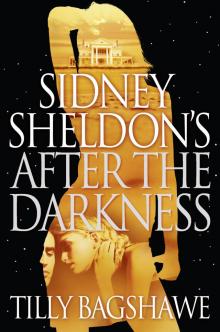 After the Darkness
After the Darkness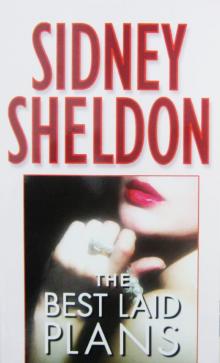 The Best Laid Plans
The Best Laid Plans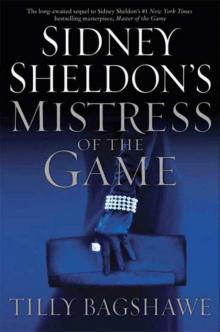 Mistress of the Game
Mistress of the Game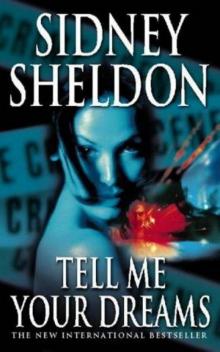 Tell Me Your Dreams
Tell Me Your Dreams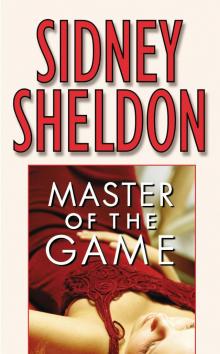 Master of the Game
Master of the Game Memories of Midnight
Memories of Midnight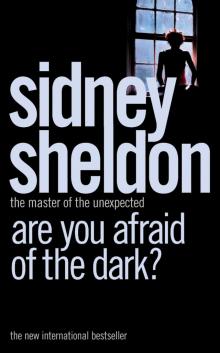 Are You Afraid of the Dark?
Are You Afraid of the Dark? Nothing Lasts Forever
Nothing Lasts Forever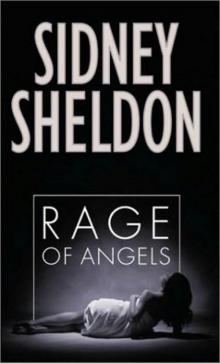 Rage of Angels
Rage of Angels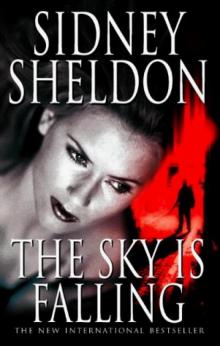 The Sky Is Falling
The Sky Is Falling The Sands of Time
The Sands of Time Morning, Noon and Night
Morning, Noon and Night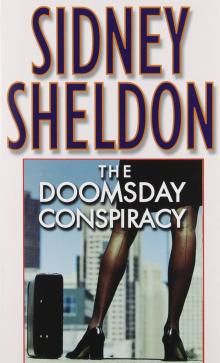 The Doomsday Conspiracy
The Doomsday Conspiracy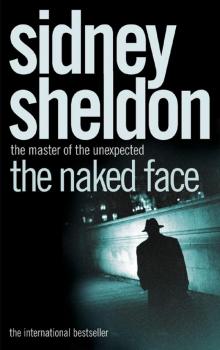 The Naked Face
The Naked Face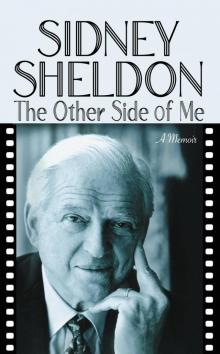 The Other Side of Me
The Other Side of Me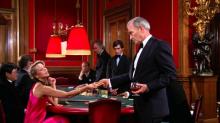 Bloodline
Bloodline The Stars Shine Down
The Stars Shine Down The Other Side of Midnight
The Other Side of Midnight A Stranger in the Mirror
A Stranger in the Mirror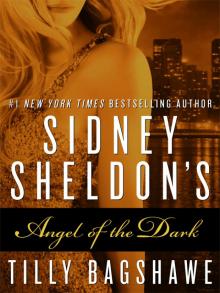 Sidney Sheldon's Angel of the Dark
Sidney Sheldon's Angel of the Dark Sidney Sheldon's the Tides of Memory
Sidney Sheldon's the Tides of Memory The Phoenix
The Phoenix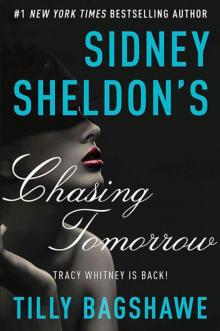 Sidney Sheldon's Chasing Tomorrow (Tracy Whitney)
Sidney Sheldon's Chasing Tomorrow (Tracy Whitney)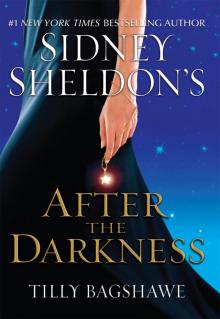 Sidney Sheldon's After the Darkness
Sidney Sheldon's After the Darkness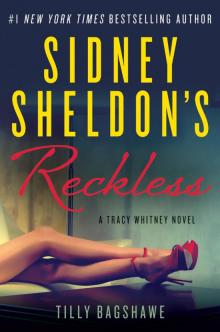 Sidney Sheldon's Reckless
Sidney Sheldon's Reckless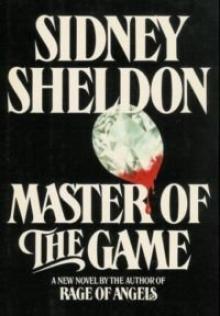 Master of the Game motg-1
Master of the Game motg-1 Sidney Sheldon's the Silent Widow
Sidney Sheldon's the Silent Widow Morning, Noon & Night
Morning, Noon & Night